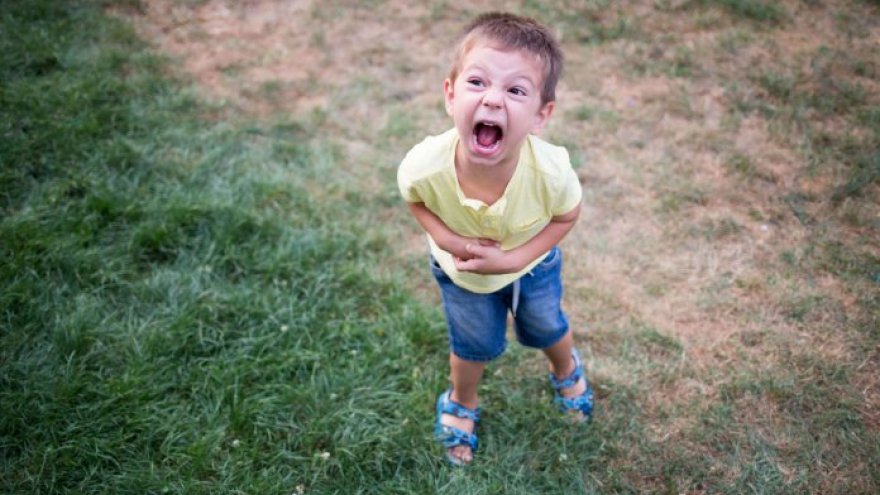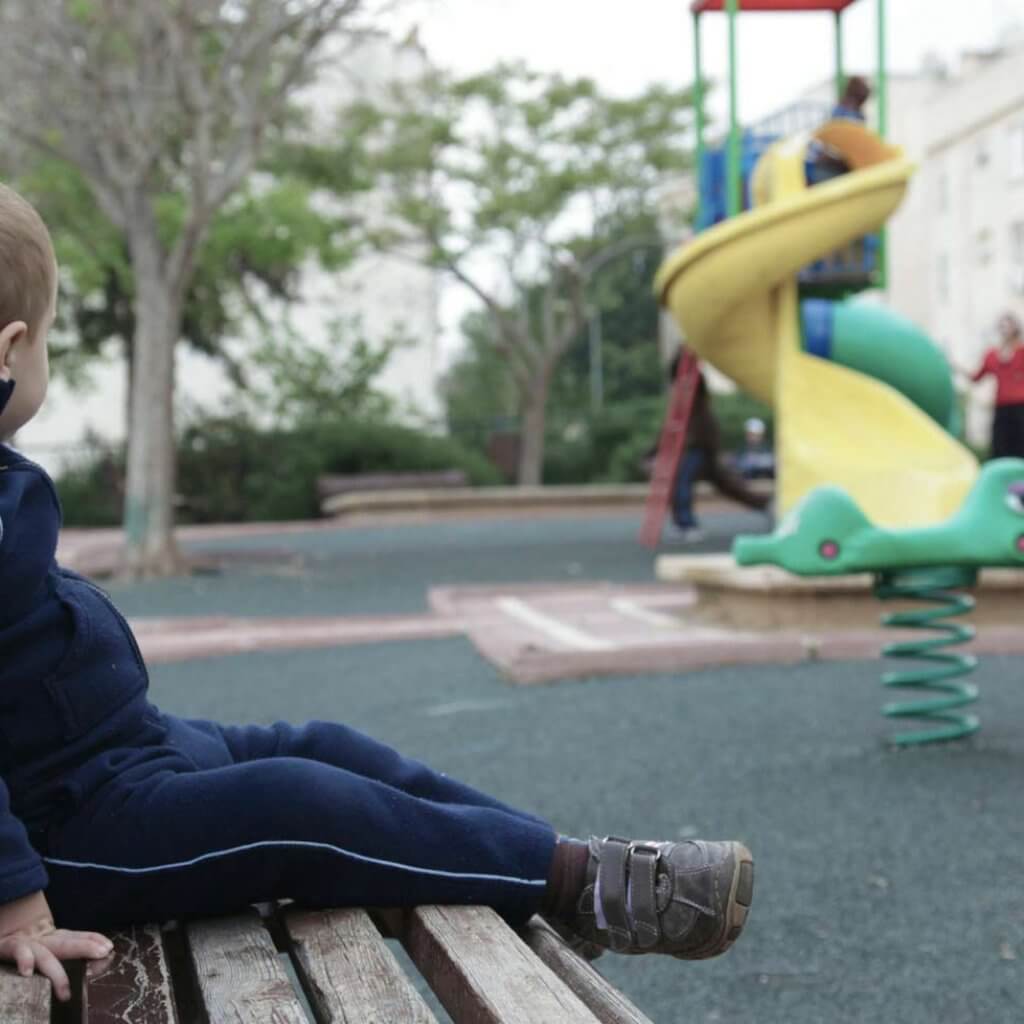4 Rude Qualities Your Child Will Grow Out Of

Kids seem to do whatever they want, say whatever they want, whenever they want. There appears to be no limits as to where your kid might wander, what she might play with, and what she’ll say and to whom. If when out and about you notice that your child meanders where she pleases, treats the world like a toy, or says the most embarrassing and sometimes obscene things to a total stranger, you might think to yourself, ‘Is my kid rude?’
When you have to think about whether or not you have a rude child, you’re undoubtedly going to question your parenting skills and tactics; that’s totally understandable. Every parent wonders if they’re raising their kids correctly, and no parent certainly wants to have a kid whose considered rude, or obnoxious, or really just unpleasant. Well, there’s nothing to worry about.
There’s a lot of ways that kids just seem rude when that’s actually not the case. When thinking about your child’s supposed or possible rudeness—and reflecting upon your parenting methods and questioning your approach—you have to think about what it actually means to be a child. Sure, life’s pretty simple for a kid, but kids are still going through a lot simply due to the fact that children are always in a state in which they’re more or less opening their eyes for the first time. Childhood is basically a consistent adjustment to the world around us, and that’s something you have to keep in mind when you start to really question your child’s behavior as it relates to your parenting skills and whether or not you have a rude kid.
No impulse control
Sometimes it seems like you have to keep your eye on your kid’s every little move. You’ll be in a public place and without a moment’s notice, your kid could wander off, start touching anything and everything, and say the first things that pops into her head to absolutely anyone. When you witness this behavior, you might often think to yourself, ‘Why can’t she just sit still? Why can’t she stop playing with and touching everything? Why did she have to say that to that person?’
The reason your kid does whatever she wants is simply because—given the brain of a child—she isn’t able to do otherwise. Research has shown that a majority of children don’t possess the ability to resist every little impulse until the age of roughly three-and-a-half to four; kids’ brains just aren’t quite that developed yet. It doesn’t mean you have a stupid child, or a child who doesn’t seem to care about her actions or the space of others; it just means that your kid can’t quite process what is or isn’t considered appropriate.
You also have to keep in mind that kids are bound to want to explore their surroundings given the fact that the world is a very new place to them. When your kid is really young, there’s still a lot she’s experiencing for the first time, and she’s naturally going to want to check everything out. While it can get a little taxing to make sure you’re kid just stays next to you instead of roaming away, just remember that—to her—the other corner of the room in the doctor’s office looks like a pretty exciting place.
Inability to control emotions

Sometimes temper tantrums and fits seem to come out of nowhere. You could be at the grocery store, tell your kid she can’t have that candy bar, and all of a sudden, you’re now being subjected to violent wailing and explosive anger. You might wonder to yourself if you’ve been raising an entitled and spoiled child—one that feels it’s acceptable to scream at you if certain demands aren’t met (demands that often seem absolutely meaningless, or like they’re just not that big of a deal). It’s totally irrational behavior; if you saw an adult screaming her head off and crying out of nowhere in a grocery store due to slight discontent, you’d think she was absolutely insane or that she had little regard for how her behavior might affect others. When it’s your kid who’s breaking down, you might wonder if something is wrong with your kid.
Yes, sometimes temper tantrums seem like a massive overreaction, and you probably think, ‘Shouldn’t my kid be able to just think this through, and realize that this isn’t worth all the trouble?’ It’s usually not worth all the trouble, but young kids and toddlers just don’t have the same emotional maturity as older kids and adults.
It can be tough for kids to feel a sudden swing of emotion given that everything is still so new. It takes a little while for kids to become adjusted to feeling all sorts of emotions at once. At times her emotional outbursts may seem inappropriate or unnecessary, but your kid isn’t really aware of that. She simply just hasn’t had enough exposure to know what really warrants a meltdown. Your kid isn’t rude or spoiled; she just simply hasn’t developed the ability to properly process her emotions.
Lack of social skills and empathy

When we think about rude children, we often think about children who don’t seem to socialize well. If you’re wondering if your kid socializes poorly, that’s because your kid does socialize poorly; all children do (up to a certain age). If children lack self-control (whether that be related to actions or emotions), then it makes sense that they wouldn’t quite know the proper or appropriate way to socialize. Again, the world is new; that means that proper socialization is still a foreign concept to your kid. Your child isn’t going around thinking. ‘Well, I should really be nice to this person, or maybe I shouldn’t bother them; they probably don’t like it’.
None of this is to say that kids are incapable of getting along with each other or adults. It just means that kids don’t have enough experience with socializing. You can’t expect your kid to play nice all the time, only because playing nice all the time isn’t yet something that’s understood by all children—and this is only because they can’t really internalize the feelings of others—meaning they might not see any reason to be friendly at all times. If you can’t really understand that other people have the same sorts of feeling that you do—in any situation—it’s pretty hard to comprehend why you shouldn’t hurt people’s feelings, or why you should be aware of the concept of other people’s space.
No, your child isn’t cold or heartless, she just doesn’t really yet understand the value of empathy—and that’s only because the concept is new. Children are pretty much in their own little world, and thinking about the way their actions affect others and considering others’ feelings just isn’t something that they do. Overtime, kids become more empathetic and are more attune to the feelings of others, but you can’t expect it right away.
A desire for independence

Even though children would pretty much be helpless without the aid of their parents, they don’t really know that yet. Just like anybody else, kids want to be independent. Sure, kids do whatever the want because they lack certain social skills (due to brain development, experience, etc.), but they still want to make their own decisions and choices. Kids do what they want, when the want, simply because they just want to, and it’s important to them that they assert their own will.
Remember that kid’s world is the only one, and that they want to the one in control of that world. Kids are really just thinking about themselves—and just like so much else with kids—it’s due to a lack of experience and exposure to the feelings of others; it’s not because they’re so self-absorbed to the point where nobody else’s feelings matter.
You just can’t expect your child to be totally aware of the fact that her actions actually affect others and not just her—so when she’s trying to maintain and create some sense of independence—she’s not really going to think about how her expression of independence is something that other people actually experience. Your kid probably doesn’t really consider that grabbing a stranger’s hair or drawing on the walls is something that the stranger even experiences, or that you’re the one who has to clean up your kid’s wall art; sometimes someone’s hair is just simply something to grab, and a wall is meant for drawing—and if your kid can exercise her independence through simply experimenting with all the things she can do—she’s going to do that.
Kids are impulsive and socially unaware because they just don’t have the capacity to reflect upon the behavior. Of course, there comes a certain age where they should be able to do so, but they’re really not going to give it much thought in the very early stages of their lives; they’re not giving much thought to anything other than their own desires which they don’t even fully understand.
So, you have to remember that when your kid acts in a way that you may deem rude or disrespectful, your kid isn’t thinking about what that means. At a point, your kid will develop the ability to internalize her behavior, but she’s just going to have get a little bit more experience first.







